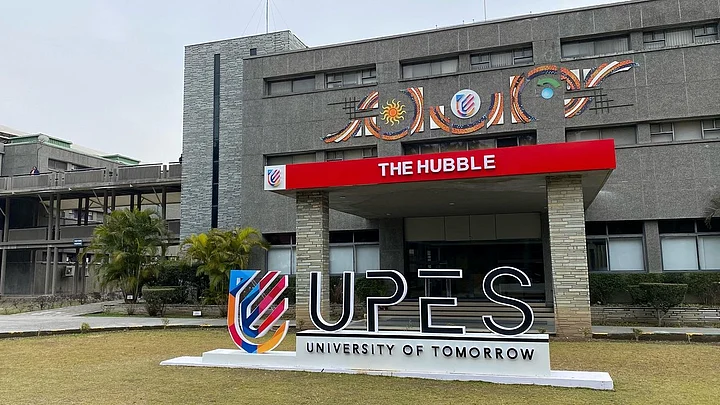A lot has happened since 2003, the year in which UPES was founded as a premier learning institution to provide multi-disciplinary, trans-disciplinary, industry-aligned, holistic education. Since its inception, UPES faculty members have made landmark contributions in their respective fields; contributions that have revolutionised research, solved local and global problems, and filled gaps in knowledge.
Today, the university stands tall as a hub of exploration and research. UPES research output – from 0.8 papers per faculty per year to two papers per faculty is possibly the highest jump for any university in one year. It is also double the global average of one paper per faculty.
Scopus (the world’s largest abstract and citation database of scientific literature) indexed research output for UPES was 1100+ in 2021, and for this year, it has already crossed 450. The university has grown twelve times in research output in the last seven years.
UPES is also home to some of the highly cited researchers in the world. Its faculty are among the esteemed 1% of Clarivate’s highly-cited researchers; only 32 faculty members from India have achieved this feat, out of which 6 are from UPES.
Unmatched academic prowess
UPES students get the opportunity to learn from the best in the world. The university’s faculty pedigree comprises two Rhodes scholars, a Fox fellow from Yale University along with Fulbright, Commonwealth, Chevening, DAAD, and Erasmus scholars. Recently, Dr. Khyati Tripathi, Assistant Professor, School of Liberal Studies, received a Harvard fellowship, an honour given to a select few in the world.
Dr. Manish Kumar, Head of Sustainability Cluster, Professor, School of Engineering, was recognised as India’s number one and world’s fourth-best environment expert for his 33 published articles from 2011-2021, as per the analysis by Expertscape.
Dr. Nalin Mehta, Dean, School of Modern Media, recently presented his book ‘The New BJP’ to Prime Minister Narendra Modi. The book has been making waves on Amazon’s list of bestselling non-fiction books for 12 straight weeks. It has been prominently featured in multiple publications and networks including Hindustan Times, The Times of India, The Hindu, The Indian Express, The Washington Post, BBC News, CNN-News18, The New Indian Express, and NDTV. The book is receiving rave reviews nationally and internationally and has been praised as a ‘seminal work’. The UPES School of Modern Media is India’s first digital-first media school.
Two faculty members, Dr. Snigdha Misra and Dr. Vanika Gupta, from Cornell University have joined the School of Health Sciences and Technology. At the School of Design, UPES has onboarded some of the finest academic leaders such as Prof. Debkumar Chakrabarti (Ex-IIT Guwahati), Prof. Pradyumna Vyas (Ex-Director, National Institute of Design), Prof. Nina Sabnani (Ex-IIT Bombay IDC), and Prof. Amit Ray (Ex-IIT Kanpur) as distinguished professors and advisors to craft the best learning experience for students.
Several international faculty are co-teaching modules at different schools. UPES is probably the only private university in India looking to hire full time 1000 PhD scholars – 250 every year for the next four years – beginning 2022.
How UPES nurtures a culture of research and innovation
In the quest to facilitate a creative and collaborative research ecosystem, the university provides financial support in the form of SEED funding. SEED is an in-house financial support available for consumables, mini equipment, travel grant, fees for characterisation, software purchase, and other operational expenses.
The initiative intends to support the growth of researchers by providing them flexible working capital and to leverage these limited funds to generate substantial external funding, industrial support, or creative scholarship projects.
Infrastructural Support
UPES has a dedicated research laboratory called the Central Instrumentation Centre, which houses machines such as X-ray Diffractometer, Drop Shape Analyzer, Photoluminescence Spectrophotometer, Atomic Force Microscope, Raman Spectroscopy, Mössbauer Spectroscopy, Electrical Resistivity and Transport Properties, Magneto Optic Kerr Effect (MOKE), to name a few.
The university also provides access to several research databases such as Science Direct, SCOPUS, Web of Knowledge, IEEE, RSC, Thomson Reuters, Harvard Business Review, Emerald Insight and Taylor & Francis. Additionally, researchers are provided dedicated research space, assistance through Junior Research Fellowships (JRF), finance, legal cells, and manpower support.
At UPES, the foundation of higher learning is based on critical thinking and innovation; every milestone in research is a testament to the university’s thriving research ecosystem.
